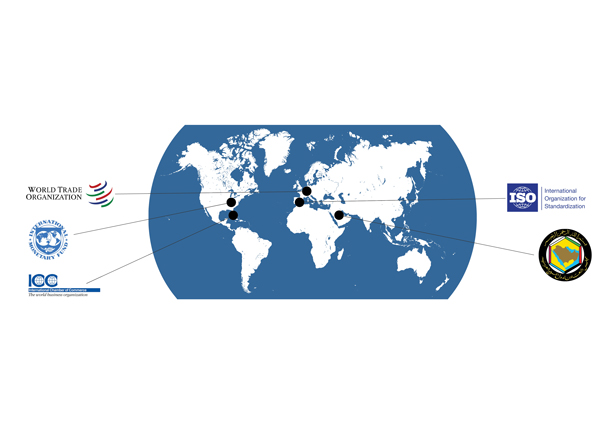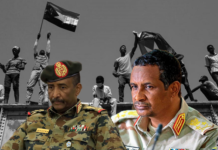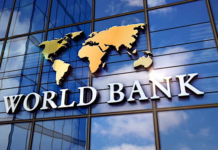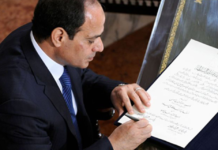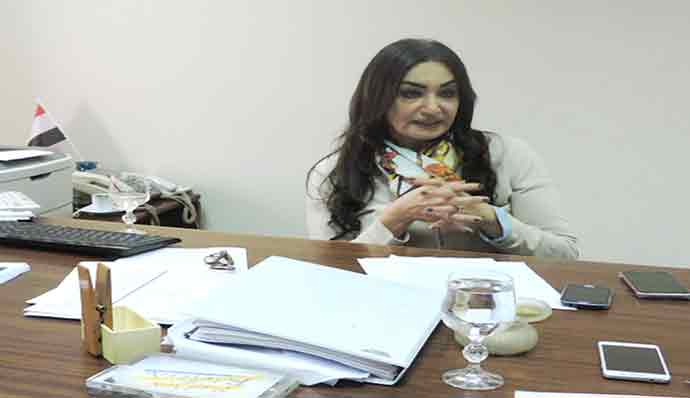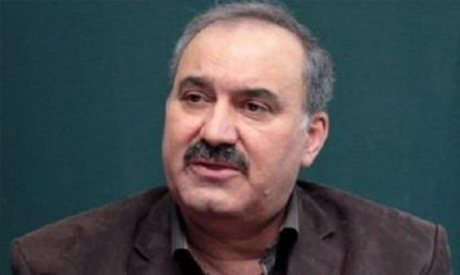By Doaa Hussein
The world trade organisation:
Established In 1995, as a successor of the general agreement on tariffs and trade (GATT), which was setup on 1948 in a coalition of 23 countries, to eradicate the trade barriers between countries between the 2 world wars.
The WTO, based in Geneva, inherited almost the same goals from GATT; however, it has a broader scope. While GATT focused on dismantling trade barriers in merchandise goods, the WTO is concerned with services, including telecommunication and banking, as well as other issues like intellectual property rights.
The international agency, with its 162 members, is meant by reducing restrains in international commerce through negotiations and trade agreements, settling trade disputes between countries, and monitoring governments for not breaching its rules.
How it is working:
The high ruling body in the WTO is the ministerial conference that meets every two years in a different country, in order to oversee the general council work, negotiate the trade hinders in the so-called “trade rounds. It also has the authority to elect the general director of the organisation (currently MR. Roberto Azevedo, a Brazilian diplomat).
Trade rounds:
A chain of eight trade rounds were held by GATT, ended by the Uruguay round which led to a wider agreement on more trade dismantles including services.
It also resulted in the establishment of the WTO.
A new trade round blossomed out of the WTO in 2001, after 5 years of conferences. The so-called “Doha round” produced a consensus on easier custom procedures “the trade facilitation agreement”, but no tangible reductions in tariffs and farm subsidies have been reached.
Criticism:
The WTO is losing its role as the largest trade regulating organisation in the world, because no progress has been witnessed in the Doha round talks, which caused some countries to call for the cancellation of it.
On the other hand, many trade agreements have been done outside the WTO, including the Trans-Atlantic trade and Investment Partnership (TTIP), a negotiation between the EU and US – and the Trans-Pacific Partnership (TTP), which also involves the US.
The 10th WTO ministerial meeting, concluded in Kenya last Saturday Dec. 19, on agreements on new guidelines for the financing of agricultural exports and new access to developed markets for poor cotton-producing countries, lack any sort of further development in declining trade barriers, which is considered by some people as the last nail in the Doha round coffin.
“While opinions remain divided among the WTO Membership, it is clear that the road to a new era for the WTO began in Nairobi,” said Mike Froman, the US trade representative to financial times.
The international monetary fund:
The IMF was established, alongside with the World Bank in 1944 in USA, in order to boost economies after the World War II recession.
The IMF main function is to sustain the stability of world economies, and prevent financial crises. Its most concern is now on the poor countries, which fears starvation and drought.
The organisation has sated its objectives in some Articles of Agreement which are: to promote international monetary cooperation, international trade, high employment, exchange-rate stability, sustainable economic growth, and making resources available to member countries in financial difficulty.
There is a unit of account in the IMF called “The Special Drawing Right”, it represents a claim to currency. It is based on a basket of key international currencies including: Euro, US Dollar, Chinese Yuan, the British pound, and Japanese yen.
Fund:
The IMF is funded by a charge-known as “quota”, paid by its 188 members. This quota is determined by the countries’ wealth, and it states the voting power of each depending on their contributions.
Response to crisis:
Post 2008 financial crisis, the IMF devoted $ 200 billion in aid of the most world affected economies. The biggest borrowers were Hungary, Romania, and Ukraine.
The Eurozone crisis in 2010 led some countries to austerity including Greece, which were supported financially through the IMF high board (the organisation has approved lately a € 28 billion loan to Greece).
Eligibility of loaning:
Some stipulated Macroeconomics reforms should be conducted by the borrowing governments in order to merit the IMF loan. Austerity, devaluation of currency, and trade liberalization are the foremost conditions, others are removing price controls, privatizing the public sector, enhancing the rights of foreign investors, which are deemed to be a heavy load on the governments and the citizens.
Managing director:
The IMF is currently managed by Mrs. Christine Lagarde from france, the first woman to head the organisation in 65 years. She was elected in July 2011, in a time of the high winds facing the IMF after the both previously mentioned crisis (2008 and 2010 crises).
Mrs. Lagarde is highly respected from the whole globe, however standing a recent corruption case by the French court of justice of the republic, which claims that she exploited its former position, as the French finance minister, and allowed Bernard tapie, owner of Adidas, unjustified $ 291 million.
If the court proved her guilty, she will be sentenced to 10 years in jail, according to the British mirror website.
Criticism:
Developed countries are claimed to have a more dominant role in the IMF than other dominant ones.
Others say that the IMF loan conditions leave high deflationary effects on already poor countries, leading to a much higher unemployment rates.
Another point is that the countries with the larger population are misrepresented in the IMF, for instance, the US has 17% of the vote in the Fund, whereas India, with more than three times the population of the US, has less than one third.
The international chamber of commerce:
The ICC is the world’s most representative business organisation in the world. It was founded in 1919 to serve the world trade and investment.
It has over 180 countries in its membership which tackle every aspect of the private sector.
The ICC is assigned with setting trade rulings, settling disputes, and defending policy.
For instance last month, the international chamber of commerce issued a ruling calling on Egypt to pay over $ 1.7 billion to the Israel after breaching the natural gas exporting agreement.
The rulings of this organisation are voluntary (in opposite to the WTO decrees which are compulsory), however, they can always be witnessed in many trade transactions.
How it is organised:
The ICC has 5 main administrative bodies, starting with the world council which elects the chairman (currently John Danilovish), vice cahirman, and the honourary chairman (the former elected one), each of whom serve for a two-year term.
The executive board comes next, consisting of 30 business leaders, followed by the international secretariat, which is the main arm of the organisation, and work on its various programmes.
Alongside, there are national committees established in countries which are already members in the ICC, while the finance committee serves as a financial consultant to the organisation’s high board.
Ways of joining the ICC:
There are two ways to be a member in the ICC, either being an affiliate with an already ICC national committee, or having a direct membership with the ICC national secretariat when there is no established national committee in your country.
Criticism:
The ICC is thought to be performing its own role on the world trade map, especially because its decisions are deemed to be voluntary, in opposite to the WTO decrees.
The international organisation for standardization:
The IOS is a standard setting body, which issues voluntary trade standards between nations, about 20,000 standards have been released since its establishment in 1947 in Geneva.
It is an Independent, non-governmental organisations, of 164 members in 2013.
Its rulings have been controlling everything from products, food to agriculture and healthcare. They assure that the products are safe, reliable and high quality, in order to create a world of competitiveness between different companies across the globe, and open the trade markets vastly.
How it is organised:
Every country has its member in the organisation, in order to participate in making standard decisions, which are voluntary, but, important.
The members meet annually at a general assembly to discuss the new standards of the IOS.
Criticism:
In order to comply with the ISO standards, this will cost you a lot if you have a still small enterprise. They are usually not free of charge. A stance which was denounced by many company owners saying that is considered a lack of credibility.
Gulf cooperation council:
it is a coalition made up of 6 gulf countries including Saudi Arabia, Kuwait, the United Arab Emirates, Oman, Qatar and Bahrain. They share almost the same political and economic objectives and policies.
The GCC was established in 1981 after the Iraq-Iran war, and the Islamic revolution in Iran.
Its main function is to boost economic agreements between gulf countries.
The council members possess almost half of the world oil share. Saudi Arabia has 18 per cent of oil production globally, which makes the GCC, a huge alliance warning the world.
How it is organised:
The high body of the council is the supreme council which meets annually. The presidency of it rotates in the alphabetic order. the ministerial council comes next, composed of the foreign ministers of member countries.
the secretariat general is the one responsible for the administrative issues in the council, and shapes its right arm.
five high representatives from members compose the consultative commission which works as the consultant of the council. a commission for settlement of disputes has been established in order to solving problems between members in the council.
Main issues:
The GCC is concerned by two main issues: security and governmental deals. the members have been working closely to eliminate the dependence on the USA in the security sector, seeking to establish a union of the Gulf countries to face terriorism.
Another issue is the economic pacts in Gulf, the GCC’s common market were set in 2008. There were plans to adopt a single currency in 2010, but these were volatile. A customs union was declared in 2003 but has made little progress since then.
Criticism:
Many criticize the progress of the GCC, saying it is still far from achieving its purposes of independence and shaping a strong Gulf coalition that has a great impact on the world decisions.


